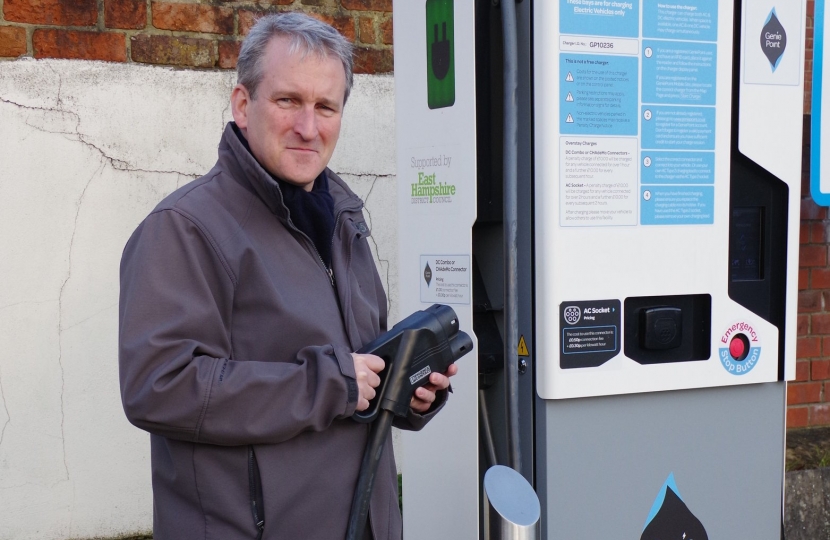
This article was written by Damian and published in this week's Petersfield Post and Herald editions:
“Green industrial revolution” is a term that we have heard used a great deal in recent years. The Ten Point Plan set out last week now puts that revolution in motion.
I know how many local groups and residents here in East Hampshire are passionate about the environment, and this plan marks the start of the UK’s path to net zero by 2050 and provides an important blueprint ahead of the COP26 climate summit that is due to be held in Glasgow next year.
It also comes as the UK prepares to co-host the Climate Ambition summit on the 12th December, marking the fifth anniversary of the Paris Agreement.
Covering clean energy, transport, nature and innovative technologies, it is big in scale and ambition, with an aim to create and support up to 250,000 highly-skilled green jobs.
It surprises many to hear that the UK is already further advanced compared to other countries on a number of aspects of green energy – an in particular offshore wind deployment. Now there will be a target to produce enough offshore wind to power every home, quadrupling how much we produce to 40GW by 2030.
Transport is also a key pillar of the plan, accelerating the transition to electric vehicles, and transforming our national infrastructure to better support their use. News this week that the UK will end the sale of new petrol and diesel cars and vans by 2030, ten years earlier than originally planned, is not popular with everyone, I know, but is key to this shift.
The cost of electric cars needs to keep coming down, but equally important is infrastructure. In areas like East Hampshire, with a lot of off-street parking, home charging is central. But people also need confidence they will always be able to re-charge. The £1.3 billion to support the rollout of chargepoints is therefore important.
But transport isn’t all about electric. Hydrogen is at a much earlier stage of development, but could be the eventual answer, especially for goods vehicles. As I’ve argued in Parliament, we need to invest in this technology too, and so I was pleased to see the plan to generate 5GW of production capacity by 2030.
Especially in the Covid lockdown, cycling and walking have come to the fore – and they are of course the most carbon-friendly transport modes of all. The recent announcement of a further £175m being made available to Local Authorities in England for cycling and walking infrastructure will include more than £3m for Hampshire. And the District Council has done a lot of work mapping out where future priorities will be.
An arena in which our local area will play a key part is trees. Trees tick a lot of boxes – including the visual landscape, biodiversity, flood prevention – and also to reduce carbon. There are ambitious plans locally - and nationally it is now envisaged we will plant 30,000 hectares of trees every year.
Elsewhere in the Ten Point Plan are items on nuclear energy, carbon capture and battery storage. Batterie technology, in particular, I have always believed will be the big game changer – for transport, but also for generation: in theory, once the batteries are good enough, you could have close to all your electricity need provided by renewables.
This Ten Point Plan is indeed bold and gives a clear signal to industries across the British economy to invest here in the UK, and develop the skills, technology and infrastructure that will enable us to look forward to a greener future. But it certainly won’t be the last word. Just as the Industrial Revolution continued to develop, so too must we continue to evolve our green industrial revolution."


